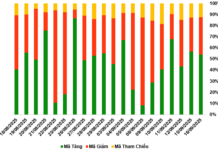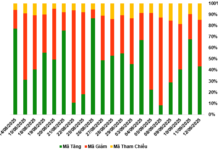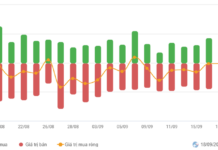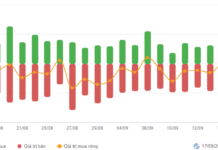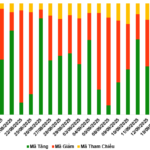At a press conference on the proposed agenda for the 7th session of the 15th National Assembly on May 19, the media asked questions regarding the impact of salary reform on pension calculations under the amended Social Insurance Law.
Vice Chairman of the Social Affairs Committee Lam Van Doan stated that the Social Insurance Law is a complex and challenging piece of legislation, affecting a large number of workers and retirees. The Social Affairs Committee, National Assembly leaders, and the National Assembly Standing Committee have sought feedback from those who will be impacted by the law, especially regarding the issue of one-time insurance withdrawals.
 The Social Insurance Law impacts a large number of workers. Photo: Duc Thanh
|
Regarding the timing of the law’s passage, Mr. Doan informed that the Social Affairs Committee aims to present it to the National Assembly for approval during the 7th session. However, the actual passage of the law will depend on the discussions and decisions made by the National Assembly delegates in the assembly hall.
Currently, the relevant documents and materials have been submitted to the National Assembly leaders for their review and signature before presenting them to the National Assembly.
The Vice Chairman of the Social Affairs Committee emphasized that the basis for social insurance contributions and the average social insurance contribution amount are directly linked to salary reform. The government has already submitted a report on this matter to the National Assembly and the National Assembly Standing Committee.
“We base our proposals on the government’s recommendations to adjust social insurance contribution rates in a way that ensures optimal benefits for workers before and after salary reform,” said Mr. Doan. “We aim to minimize any discrepancies between those who will receive the new salaries and those who retired before July 1, 2024.”

Vice Chairman of the Social Affairs Committee, Lam Van Doan. Photo: National Assembly
|
However, Mr. Doan also noted that this is a challenging issue that requires careful consideration. The committee is coordinating with relevant agencies to continue studying and proposing the best option to the National Assembly to ensure the protection of workers’ rights.
Replacing the base salary with a reference salary
Regarding the reference salary, Mr. Doan explained that Resolution 28 of the 12th Central Committee on Social Insurance Policy Reform stipulates that the base salary should be abolished when implementing salary reform. This base salary has been the basis for calculating pensions and social policies for workers, as well as various other policies.
Therefore, from July 1, 2024, according to Resolution 28, the base salary will be replaced by a new reference salary.
“The government agencies are working on calculating an appropriate reference salary to ensure that it is not lower than the current base salary,” said the Vice Chairman of the Social Affairs Committee. He added that the National Assembly’s agencies are also evaluating and considering this matter.
“The calculation of the reference salary and the specific multiplier, along with salary reform, for application in the following years, needs to be carefully and scientifically considered,” asserted Mr. Doan. “We aim to ensure that retirees and current workers receive optimal benefits after the law is enacted.”
|
In the report on the absorption, explanation, and editing of the draft amended Social Insurance Law, the Government proposed using a “reference level” instead of the base salary in the contents of the social insurance regimes in the 2014 Social Insurance Law, which are currently linked to the base salary. According to the Government, this proposal aims to continue implementing the social insurance regimes that are currently linked to the base salary, while also taking into account the suggestions of the National Assembly delegates regarding the avoidance of absolute monetary values in the law. The Government also proposed adding a clause in the article on transitional provisions of the draft amended Social Insurance Law regarding the reference level for social insurance calculation. Specifically: “The reference level for social insurance calculation shall be VND 1.8 million from July 1, 2024, replacing the base salary for the implementation of social insurance in accordance with the provisions of the 2014 Social Insurance Law and for the implementation of social insurance in accordance with this Law.” “The reference level for social insurance calculation shall be adjusted by the Government based on the increase in the consumer price index and in accordance with the capacity of the state budget and the social insurance fund.” |
Thu Hang – Tran Thuong

